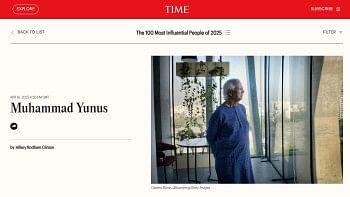Social media and Indian national elections

The drawing up of a "Voluntary Code of Ethics" by social media giants like Facebook, Twitter, WhatsApp and ShareChat and their intermediaries for the coming parliamentary elections in India is a landmark decision in more ways than one. The Code was submitted to the Election Commission on March 21, a day after an interaction between the social media platforms and the Internet and Mobile Association of India. Behind the Indian EC's move to convene the meeting with the social media platforms and the intermediaries was apparently the US intelligence agencies' finding that Russia had meddled in the US Presidential election in 2017, with a campaign of email hacking and online propaganda aimed at hurting Democratic candidate Hillary Clinton and helping Donald Trump, an issue that continues to roil American politics even today.
The development is important for two reasons: first, this is the first time such a Code has been worked out in India for the social media sector, and secondly, it was the only media space that has remained outside the purview of the Representation of People Act of 1951 which covers the print and electronic media.
There is no disputing the need for some kind of regulation of the social media which has gained popularity and importance because it provides much easier access to the people than the conventional media world. The sources of information through the social media platforms are a lot more varied than the print and audio-visual media, and the mechanism for checking the authenticity of that information is much more restricted compared to the traditional newsrooms. In newsrooms, a reporter is accountable to the Editor for the information he has collected, but the person who uploads or circulates a piece of information on the social media is not subjected to any check and is not accountable to anyone. This clearly poses a great risk of fake news and rumours being passed off as "genuine" information. This is where one of the key components of the Code of Ethics is expected to play an important role.
As per that Code, any content that breaches electoral law and the Election Commission's Model Code of Conduct will be pulled down by the social media outlets within three hours of its being uploaded. But concerns remain. The three-hour time lag is enough to do the damage if the information happens to be sensitive and has the potential to hit the level playing field sought to be provided by the EC for the polls. We have seen in the past how violence is fuelled by rumours on the social media. A committee set up by the EC had submitted its report in January this year calling for intermediaries sending transparency reports to the poll body as also to ensure accountability. The regional-language social media platform is reportedly working on a fact-checking agency to curb fake news.
Another key element of the Code of Ethics is the commitment given by the social media platforms to provide a mechanism for political advertisers to submit pre-certified advertisements issued by EC's Media Certification and Monitoring Committee, and the code of ethics also promises to facilitate transparency in paid political advertisements. Equally important in the Code is that a notification mechanism has been developed through which EC can inform relevant social media platforms of potential violations of Section 126 of the Representation of the People Act, 1951 which relates no campaigning in the 48 hours leading to the polling.
While the Election Commission is right to favour self-regulation by the social media carrying information in the run up to and during the elections, it faces the twin challenges of ensuring a level playing field for all players and at the same time ensuring freedom of expression without appearing to be overbearing. But the efficacy of the Code of Ethics will largely depend on the coordination and communication synergy between the Commission and the social media outlets, given the enormous volume of content uploaded by users. That is a challenge for both the EC and the social media platforms.
The Code of Ethics may not be a foolproof arrangement. That is why Chief Election Commissioner Sunil Arora rightly pointed out that the Code should not be considered as the be-all or end-all of regulation and it is a "work-in-progress" which means it is a continuous process. But the good sign is that a beginning has been made and it needs to be carried forward. The need for check and balance cannot be overstated at a time when the Indian polity is showing signs of high degree of polarisation and a part of it is reflected on the war of words in the social media.
As election dates draw near, this may tend to border on frenzy. But the question that arises is: will the Code of Ethics be limited to the general elections or can it be taken beyond? The Chief Election Commissioner hinted at taking a much longer perspective when he said, during his interaction with the representatives of social media platforms and the intermediaries, that the Code would be used in the immediate context of poll and perhaps even after that. This is a good suggestion that needs to be debated in a country where state-level assembly polls are a regular feature.
Pallab Bhattacharya is a special correspondent to The Daily Star.






Comments